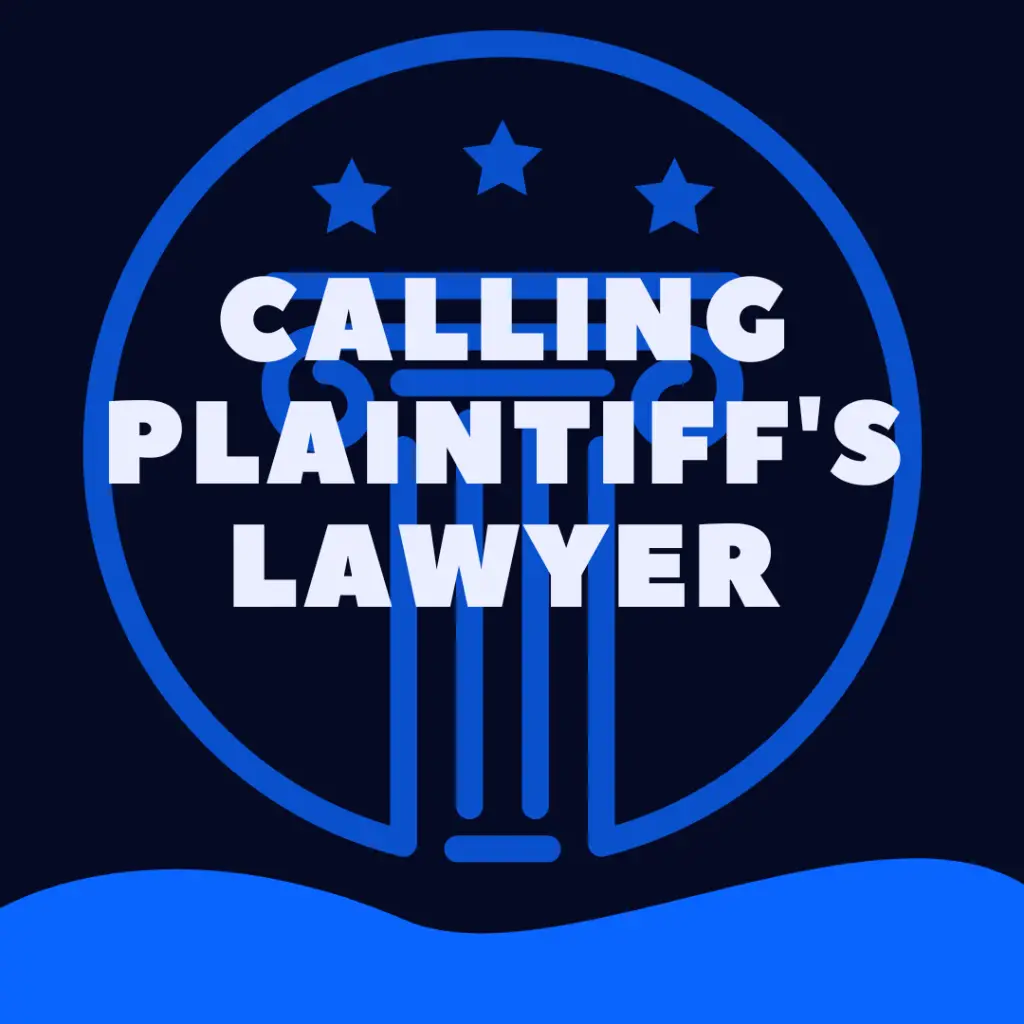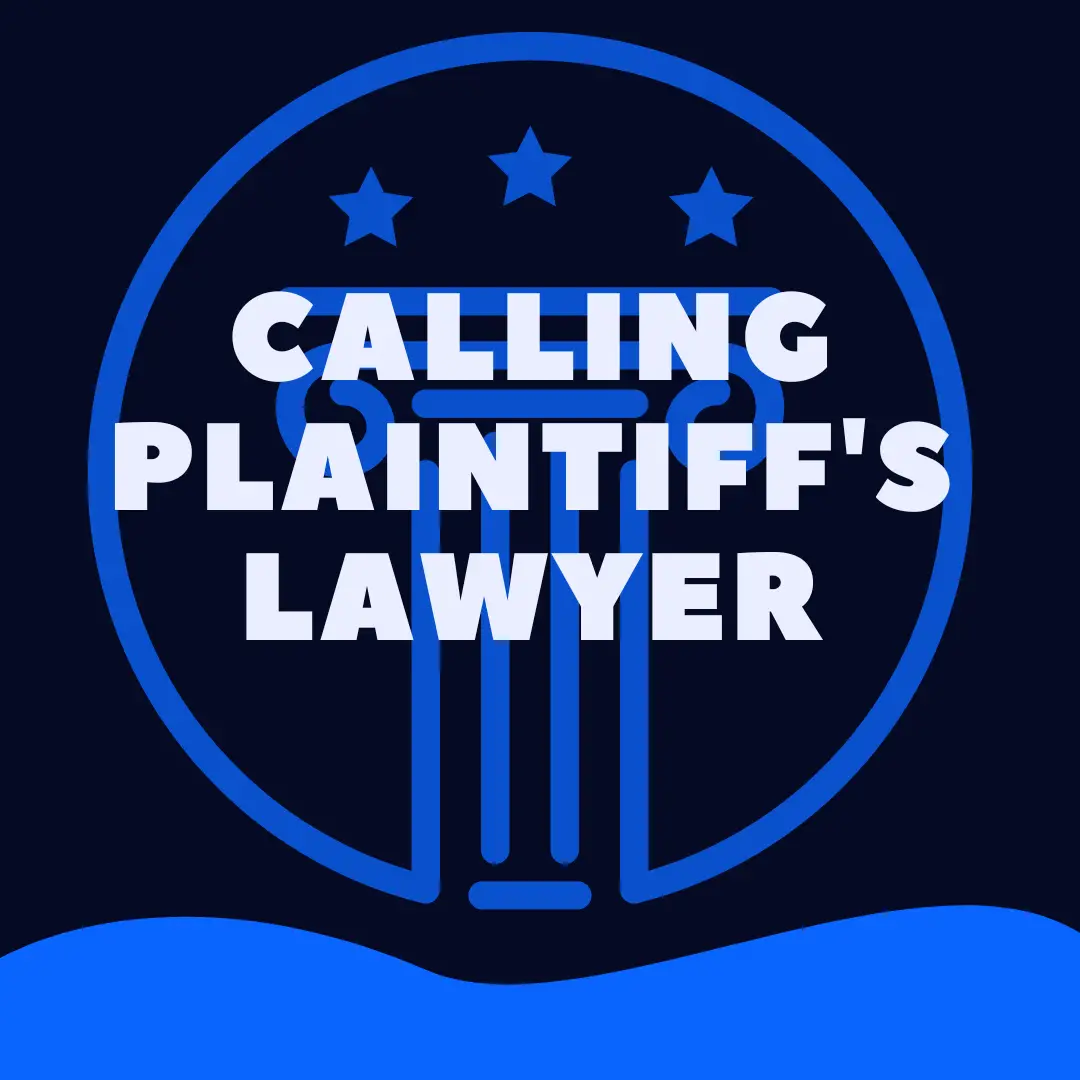Answer: It depends on who you are in the case, whether you have an attorney of your own, and what you intend to achieve with your contact.
In the article that follows, we’ll explain.
Can I Call The Plaintiff’s Attorney? (Discussion)
Disclaimer
The contents of this web page are for informational purposes only, and nothing you read is intended to be legal advice. Please review our disclaimer about law/legal-related information on this website before taking action based upon anything you read or see.
Prohibited Contact With Represented Parties
Lawyers are subject to many rules of their profession, and they could be subject to serious discipline if they do not follow these rules.
One of these rules is the prohibition against having contact with a party that has a lawyer of their own in the case.
For example, let’s say Lawyer #1 works for Party #1.
Party #2 has a lawyer of their own (Lawyer #2).
Party #2 calls Lawyer #1 to talk about the case.
Because of rules prohibiting the lawyers from having contact with represented parties about the case, Lawyer #1 would have to refuse the call.
Lawyer #1 would also be duty bound to contact Lawyer #2 to let him know that Party #2 called Lawyer #1, and describe the contact.
Parties #1 and #2 are not bound by the same rules as the attorneys, but if either of the clients continues to contact the lawyers of the adverse parties against the advice of their lawyers, the client will probably end up having to find another lawyer.
Self-Represented Parties
If a party to the case does not have a lawyer, the rules about having contact with a represented party do not apply.
For example, let’s say Lawyer #1 works for Party #1.
Party #2 has no attorney representing him.
Party #2 calls Lawyer #1 to talk about the case.
Lawyer #1 will take the call, but before talking about the case, will usually confirm that Party #2 does not have a lawyer.
Once Party #2 confirms that he doesn’t have a lawyer, Lawyer #1 and Party #2 can talk about the case and the reason for Party #2’s call to Lawyer #1.
Other Non-Parties
Other individuals involved in the case who are not parties, such as spouses, friends, victims, and witnesses might want to contact the lawyers involved in the case.
While this may not be the most prudent action in the case, there isn’t anything that would prohibit the lawyer from talking with a non-party individual.
The lawyer may not take the call, but refusing the contact would be for other reasons, like not wanting to make himself a witness in the case.
For example, it is common for angry people to call up the lawyer to ‘give him a piece of my mind.’
The statements made to the lawyer could be evidence in the case.
To offer the statements in the case, the lawyer might have to be called as a witness to offer the foundational testimony necessary to subsequently offer the ‘piece of my mind’ statements.
If the lawyer becomes a witness in the case, he might have to relinquish the case/client to another attorney in the firm, or another firm altogether.
When non-parties call, lawyers may push the call over to support staff or even to their in-house investigator, individuals who could be called as witnesses to help offer the statements in court.
Purpose of the Call
There are some instances where the contact with the plaintiff’s lawyer could get an individual in trouble.
While these instances will be very fact and case specific, a common example is where the plaintiff is someone that the caller is ordered by the court not to speak to.
No-contact orders often prohibit attempts to contact an individual through second-hand means, such as through family members, employers, or even agents.
This is especially the case if the call communicates something like ‘please tell Jane that _______.’
A call to the plaintiff’s lawyer in this scenario would definitely be problematic.
Should You Call The Plaintiff’s Lawyer?
Parties to the case are rarely experienced lawyers.
They often fail to realize exactly how anything they say or do can be used against them at a later date.
Statements made to the opposing lawyers can be used against them, as are any letters or emails written and sent.
Even good faith offers to try and resolve the case (‘just let me pay for the damages so we can be done with this’) can potentially be turned against the party.
Calls to opposing counsel (even by the lawyers) are always made cautiously, paying close attention to what is being said or admitted.
But calls to the other side aren’t all bad.
Talking about the case can sometimes push the case to a resolution that everyone wants.
Not Sure What To Do?
Thinking of calling the plaintiff’s lawyer but not sure how to go about it, or whether you can do it?
If you have a lawyer (on the matter in question or another matter), it is best practices to confer with him before taking action.
There may be some instances where this contact is not objectionable, or arrangements can be made so that the contact can happen without causing trouble.
If you don’t have a lawyer, doing even a consultation with an attorney to review the rules and the purpose of the contact can help.
Wrap Up
Want to learn more about your justice system?
Browse our free legal library guides for more information.


